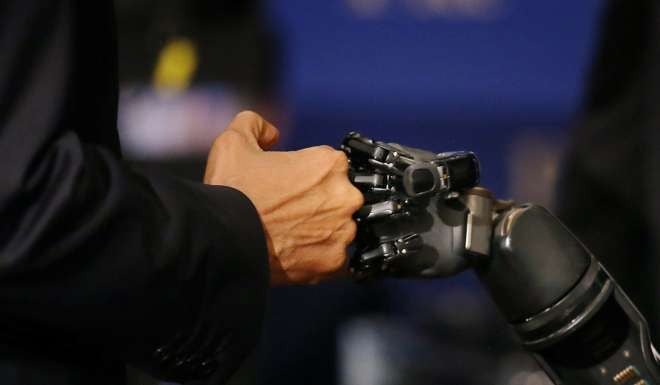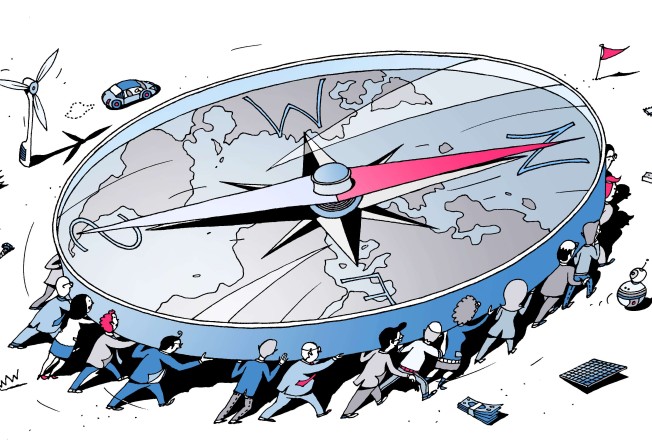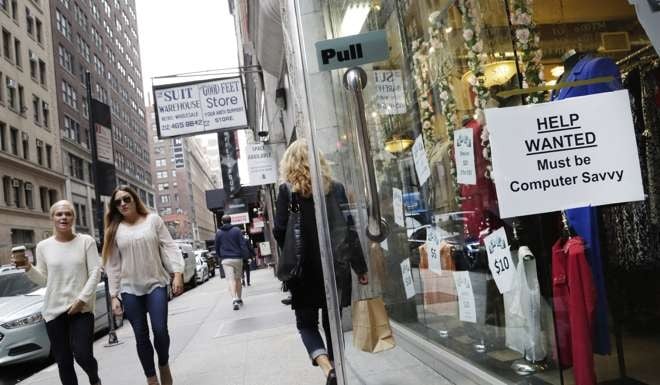
Five challenges for true global leaders in 2017
Klaus Schwab says true leadership in today’s uncertain and anxious world entails creating a dynamic, inclusive global governance, and seeing past populism while recognising the legitimacy of public fears

Leaders must be responsive to the demands of the people who have entrusted them to lead, while also providing a vision and a way forward, so that people can imagine a better future.
True leadership in a complex, uncertain, and anxious world requires leaders to navigate with both a radar system and a compass. They must be receptive to signals constantly arriving from an ever-changing landscape, and willing to make necessary adjustments; but they must never deviate from their true north, which is to say, a strong vision based on authentic values.
That is why the World Economic Forum has made “Responsive and Responsible Leadership” the theme for our annual January meeting in Davos.
As leaders in government, business and civil society chart a course for the next year, five key challenges will warrant their attention.

For starters, they will have to come to grips with the “fourth industrial revolution”, which is redefining entire industries, and creating new ones from scratch, owing to groundbreaking advances in artificial intelligence, robotics, the internet of things, self-driving vehicles, 3D printing, nanotechnology, biotechnology and quantum computing.
We will increasingly see what used to be science fiction become reality
These technologies have only begun to show their full potential; in 2017, we will increasingly see what used to be science fiction become reality. But, while the fourth industrial revolution could help us solve some of our most pressing problems, it is also dividing societies into those who embrace change and those who do not. And that threatens our well-being in ways that will have to be identified and addressed.
Second, leaders will have to build a dynamic, inclusive multi-stakeholder, global governance system. Today’s economic, technological, environmental and social challenges can be addressed only through global public-private collaboration, but our current framework for international cooperation was designed for the post-war era, when nation-states were the key actors.

Geopolitical shifts have made today’s world truly multipolar. As new global players bring new ideas about how to shape national systems and the international order, the existing order is becoming more fragile. So long as countries interact on the basis of shared interests, rather than shared values, the extent to which they will be able to cooperate will be limited.
Watch: Putin and the US presidential election hack
Moreover, non-state actors are now capable of disrupting national and global systems, not least through cyber attacks. To withstand this threat, countries cannot simply close themselves off. The only way forward is to make sure that globalisation is benefiting everyone.
2017 will be a year in which social inclusion and youth unemployment become critical global and national issues
A third challenge for leaders will be to restore global economic growth. Permanently diminished growth translates into permanently lower living standards: with 5 per cent annual growth, it takes just 14 years to double a country’s gross domestic product; with 3 per cent growth, it takes 24 years. If our current stagnation persists, our children and grandchildren might be worse off. Even without today’s technologically driven structural unemployment, the global economy would have to create billions of jobs to accommodate a growing population, forecast to reach 9.7 billion by 2050, from 7.4 billion today.
Thus, 2017 will be a year in which social inclusion and youth unemployment become critical global and national issues.
A fourth challenge will be how to reform market capitalism, as well as restore the compact between business and society. Free markets and globalisation have improved living standards and lifted people out of poverty for decades. But their structural flaws – myopic short-termism, increasing wealth inequality, and cronyism – have fuelled the political backlash of recent years, in turn highlighting the need to create permanent structures for balancing economic incentives with social well-being. Finally, leaders will need to address the pervasive crisis in identity formation that has resulted from the erosion of traditional norms over the past two decades.
Watch: Trump pledges to quit TPP on day one
Globalisation has made the world smaller but more complex, and many people have lost confidence in institutions. Many now fear for their future, and are searching for shared but distinct beliefs that can offer a sense of purpose.
Identity formation is not a rational process; it is deeply emotional and often characterised by high levels of anxiety, dissatisfaction, and anger.
Politics is also driven by emotion: leaders attract votes not by addressing needs or presenting long-term visions, but rather by offering a sense of belonging, nostalgia for simpler times, or a return to national roots. We witnessed this in 2016, as populists made gains by fostering reactionary and extreme beliefs. Responsible leaders, for their part, must recognise people’s fears and anger as legitimate, while providing inspiration and constructive plans for the future.
Watch: Italy’s Matteo Renzi quits after crushing referendum defeat
But how? The world today seems to be engulfed in a sea of pessimism, negativity, and cynicism. And yet, we have an opportunity to lift millions more people out of poverty. And we have a duty to work together towards a greener, more inclusive, and peaceful world. Whether we succeed will not depend on some external event, but rather on the choices our leaders make.
The coming year will be a critical test for all in global society. More than ever, we will need responsive and responsible leadership to address our collective challenges, and to restore people’s trust in institutions and in one another.
We do not lack the means to make the world a better place. But to do so, we must look past our own narrow interests and attend to the interests of our global society.
That duty begins with our leaders, who must begin to engage in open dialogue and a common search for solutions to the five major challenges on the horizon.
If they acknowledge that ours is a global community with a shared destiny, they will have made a first – albeit modest – step in the right direction.
Klaus Schwab is founder and executive chairman of the World Economic Forum. Copyright: Project Syndicate